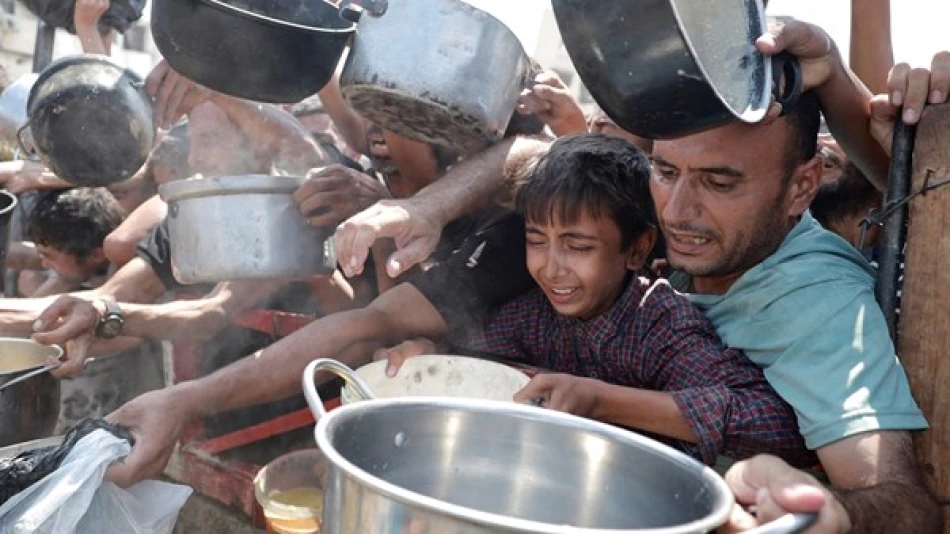
WHO Warns: Thousands in Gaza at Risk of Starvation Amid Escalating Crisis
WHO Declares Gaza Famine Crisis as Healthcare System Collapses
The World Health Organization has issued its starkest warning yet about Gaza's deteriorating humanitarian situation, declaring that the territory has entered the worst phase of famine according to international food security classifications. With thousands facing death by starvation and the healthcare system on the brink of complete collapse, the crisis represents one of the most severe humanitarian emergencies in recent memory.
Acute Malnutrition Reaches Critical Levels
The WHO's Thursday statement paints a devastating picture of civilian suffering in Gaza. Residents are experiencing severe food shortages, with some going days without any sustenance. The organization reports that deaths are occurring due to extreme weakness and organ failure, particularly among children suffering from acute malnutrition who face imminent death without urgent medical intervention.
This situation mirrors the catastrophic famines witnessed in Somalia (2011) and Yemen (2016-2018), where similar patterns of malnutrition-related deaths preceded broader humanitarian disasters. However, Gaza's crisis is unfolding in a much more compressed timeframe and densely populated area, potentially accelerating the severity of outcomes.
Healthcare Infrastructure in Free Fall
Gaza's medical system has effectively ceased functioning as a reliable healthcare provider. The WHO highlighted critical shortages of medical supplies and fuel, creating a cascading crisis that amplifies civilian suffering while leaving healthcare workers unable to provide even basic care.
Long-term Health Consequences
Beyond immediate mortality risks, the WHO emphasized that recovery from severe malnutrition requires months of specialized medical care and therapeutic nutrition. More concerning, many consequences will persist for life, including stunted growth and permanent health complications—creating a generation of Gazans whose development has been irreversibly impacted.
This echoes patterns observed in other conflict zones where malnutrition during critical developmental periods created lasting public health challenges that persisted decades after conflicts ended.
International Response and Access Challenges
The WHO has demanded immediate and comprehensive humanitarian access, calling for food and medical supplies to enter through all possible routes. The organization stressed the need for safe and rapid passage of aid to save lives and halt civilian suffering, while simultaneously calling for a ceasefire.
The access restrictions represent a significant departure from international humanitarian norms established after World War II, where civilian populations in conflict zones maintained rights to humanitarian assistance regardless of political circumstances.
Broader Implications for Regional Stability
Gaza's humanitarian collapse carries implications beyond its borders. Historical precedent suggests that severe humanitarian crises in densely populated areas create long-term instability, refugee flows, and regional security challenges. The concentrated nature of Gaza's population—among the world's highest density—means that humanitarian impacts will be both severe and highly visible to international observers.
For regional powers and international organizations, Gaza represents a test case for humanitarian intervention mechanisms and the international community's ability to respond to acute civilian crises in conflict zones.
Most Viewed News

 Layla Al Mansoori
Layla Al Mansoori






